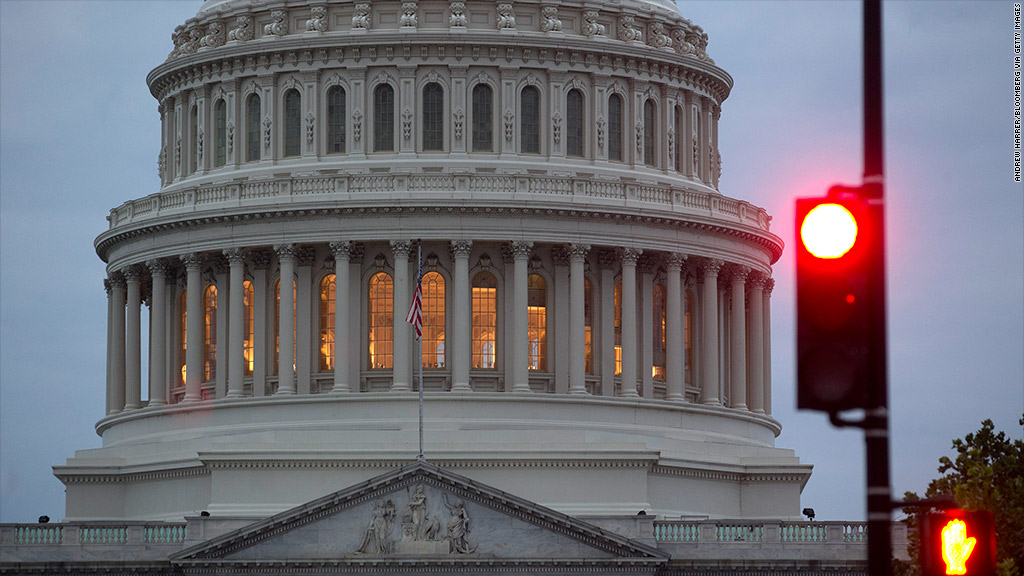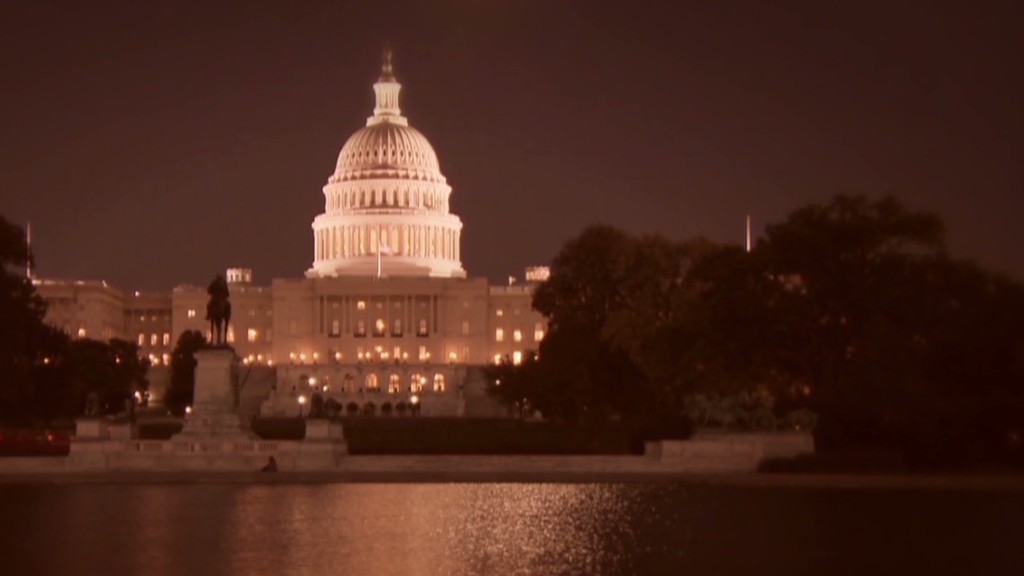
The outlines of next week's possible government shutdown have started to take shape as government agencies roll out their contingency plans.
Military service members will stay on the job but their paychecks may be delayed.
Federal museums and the National Zoo will close, so tourists will be turned away.
Most of the housing department will be furloughed, but the department promises to keep processing FHA loans.
It's impossible to say if a shutdown will happen. Congress did seem to move closer to one this weekend as Republicans and Democrats remained sharply divided.
But one thing is clear: Shutting down the government is a complex process.
(Related: How shutdown would hit one small business)
To get ready, agencies have been identifying services, programs and workers deemed essential, or "excepted" in official speak. Translation: Workers in the business of protecting life and property. They will continue working, though they won't be paid until after the shutdown.
Employees whose jobs are funded by money other than the annual appropriations that Congress is fighting over will keep working as well. So too will presidential appointees.
But all other programs deemed to be non-essential, or "non-excepted," will be shuttered. And workers at those programs will be furloughed without pay.
Here are a few of the plans for next week in the event of a shutdown.
Defense: All active-duty military personnel, as well as active-duty reserve personnel, will stay on the job, the Pentagon said. But their Oct. 15 paycheck could be delayed if the shutdown goes past Oct. 7.
Civilian personnel engaged in essential activities will also continue working through the shutdown.
Civilian personnel involved in non-essential work will be furloughed without pay -- unless money to pay their salaries is drawn from a source other than fiscal year 2014 appropriations.

Those who work during the shutdown will be paid, but not until Congress appropriates funds to do so.
Temporary duty travel will be canceled, unless it's in direct support of the war in Afghanistan or related to safety of life and protection of property or foreign relations. In such cases, written approval is required.
For any service member killed during a shutdown, families will not get death benefits until the shutdown ended.
Federal courts and justice: Justice will continue to be served.
The court system said it will remain open for business for approximately 10 business days in the event of a shutdown.
It's able to do so on the basis of fees and funds from prior appropriations, according to an earlier report from the Congressional Research Service.
All court proceedings and deadlines will remain in effect unless otherwise advised. The judiciary said it will reassess its funding capacity on or around Oct. 15.
The Department of Justice, meanwhile, said it only plans to furlough about 15% of its 114,486-person workforce.
Health and Human Services: The Department of Health and Human Services has said it will furlough 52% its employees if there's a shutdown.
Offices to be hit hardest include the Administration for Children and Families, the Administration for Community Living and the Agency for Healthcare Research and Quality.
The Centers for Disease Control and Prevention would be affected too. But they would keep on minimal support for their outbreak investigations, processing of laboratory samples and the 24/7 emergency operations center.
The Food and Drug Administration will also continue limited activities related to high-risk recalls and other vital efforts.
The Centers for Medicare & Medicaid Services will continue large portions of Obamacare. And the Medicare program will continue "largely without disruption" during the shutdown.
Housing loans: The Department of Housing and Urban Development, of which the Federal Housing Administration is a part, said it will be furloughing 96% of its workforce.
Nevertheless, on Monday it said it would continue to process FHA loans during the shutdown. But given the greatly reduced staffing levels, the underwriting and loan approval process will be slower than usual, an FHA spokesman said.
National museums: The Smithsonian Institution said its 18 museums and the National Zoo will be closed to the public in a shutdown.
It will furlough 84% of its workforce. The other 16% who will be asked to work include employees responsible for the care and protections of the facilities and collections as well as the care and feeding of the animals at the zoo.
Passports: During the last shutdown in the mid-1990s, passport offices closed. But according to the State Department's current shutdown plan, offices will remain open because they generate enough in fees to support their operation.
Any offices located in a federal building affected by the shutdown, however, may not be able to open.
Chemical spill investigations: They'll be halted.
The Chemical Safety and Hazard Investigation Board said it will furlough 37 of its 40 staff members in a shutdown.
"There would be no ability to respond to a major incident," managing director Daniel Horowitz told CNN.
The board sees its mission as investigative rather than immediately life-saving, which is why it essentially will shut down until Congress appropriates funding.
NASA: Good news for crews docking at the International Space Station. NASA said it will keep on some employees during a shutdown to make sure the crews are safe. Existing satellite missions will also continue.
But any NASA activity not tied to the protection of life and property will cease during the shutdown.
That's true even if it would cost more to shut a program down than to keep it running, according to NASA guidance.
-- CNNMoney's Les Christie and CNN's Carol Cratty, Jamie Crawford, Lisa Desjardins and Evan Perez contributed to this report.


